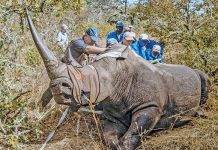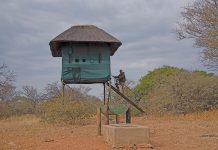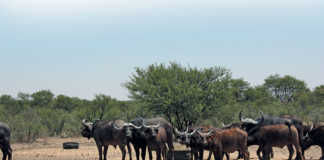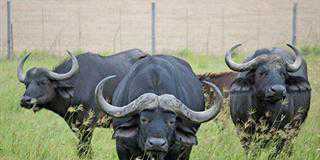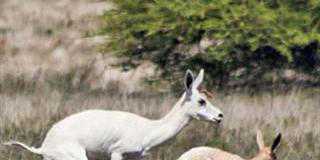Hunters from different countries expect different things from their safari experiences, and a new survey will help wise safari operators cater for them.
For example, hunters from Spain expect a higher standard of accommodation than North Americans do, along with completing their trophy wish list. Germans, on the other hand, are more concerned about being overcharged for their hunts.
The analysis was done by Prof Laetitia Radder of Nelson Mandela Metropolitan University’s Department of Marketing. She surveyed potential hunters from the US, Germany, Spain, the UK and other countries including Norway, Denmark, the Czech Republic, Austria, Belgium, France, Ireland, Italy, New Zealand, Hungary, Finland, Australia, Greece, Slovenia, Croatia and Mexico.
“Hunters go on safari with several expectations,” notes Prof Radder. “The research focused on their expectations during a hunt, and their satisfaction with the whole South African experience from start to finish. I investigated the challenges and risks as well as some positive elements associated with hunting expeditions.”
Pleasant anticipations
Generally, the hunters canvassed didn’t seem worried that their hunts wouldn’t be worthwhile, even if they didn’t bag all the trophies they came for. They didn’t see any risk of the total experience being negative, especially as they knew they’d encounter animals unique to the continent.
In fact, for all the hunters, this contact with nature was the most anticipated aspect of the safari experience, along with unique animals, and the country’s natural wonders.Next, they anticipated more personal experiences like improving their hunting skills, relaxation, realising a dream, sharing campfires with like-minded people, and contributing to wildlife conservation.
Problems foreseen
But the hunters didn’t expect everything to be smooth sailing. “Overall, they anticipated that stalking the animal would be a challenge, especially over rough terrain, that immigration and customs clearance would be slow, that the wait at airports would be long, and that finding the desired trophy animal would be difficult,” says Prof Radder.
“These levels of anticipation affect the extent to which the event actually materialises and therefore influence the hunter’s satisfaction. For example, if customs clearance is more efficient than anticipated, the visitors will be pleased with this part of the process.”
The survey showed that Germans and Spaniards expect that finding and stalking the desired animal would be rather difficult, while those from the US saw this as less of a challenge.
“Although hunting outfitters obviously can’t directly influence the stalking conditions or the hunters’ stalking ability, they can try to mentally prepare the Germans and Spaniards for the veld conditions and encourage them during stalking,” says Prof Radder. “Less preparation and encouragement would be required for Americans.”
Hunters from Spain and the UK were more convinced than US hunters that it would be hard to find the desired trophy. Prof Radder suggests that hunting providers could try to reassure them about the availability of trophy animals. “Be careful, though, of overpromising unless you can guarantee results,” she cautions.
What hunters expect
Americans gave the most positive outcome in the survey with the following statements:
- They would be able to sample typical South African food. Since German hunters had the highest expectations in this regard, hunting outfitters can capitalise by putting special effort into the menu prepared for them.
- Accommodation would be comfortable. Spanish respondents indicated that they would expect more effort from their hosts than, for example, Germans would.
- They would be able to take all the trophies on their wish list. Spaniards had a much higher score here than other hunters did and outfitters should work hard to fulfil this expectation, while ensuring their promotional material doesn’t create unrealistic expectations.
- They would be able to hunt trophies not available elsewhere in the world.
- They would be able to spend time on enjoyable non-hunting activities. German and Spanish visitors might be more focused on hunting.
- They would contribute to wildlife conservation. This highlights the link the Americans perceive between hunting and conservation.
- They would have a great social experience. Generally hunters have much higher expectations of experiencing nature.
- They would be able to share the campfire with like-minded people. This points to the need among hunters for shared camaraderie rather than more superficial social interaction.
- They would be able to get back to their roots.
In contrast, non-US hunters were more likely to want to learn more about South Africa and its people – this was particularly true for Spaniards – and testing their hunting skills.
Contact Prof Laetitia Radder on +27 41 504 3818, fax +27 41 504 3744 or e-mail [email protected].

